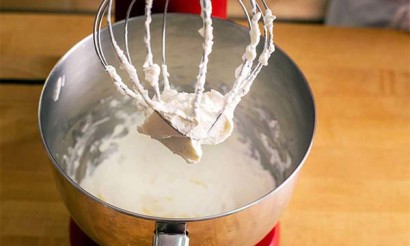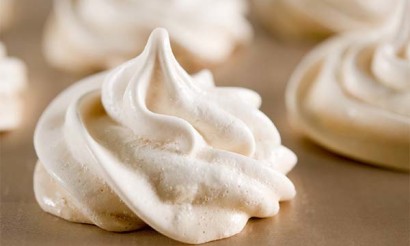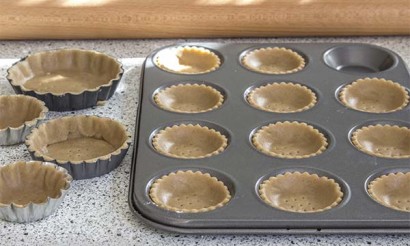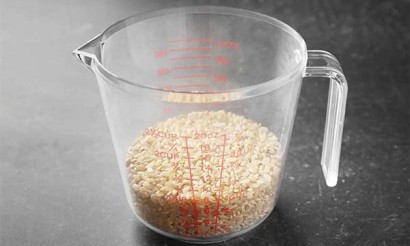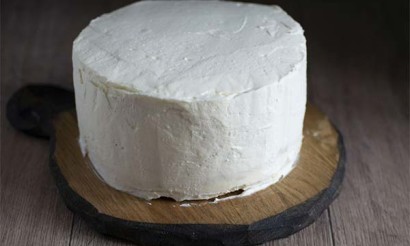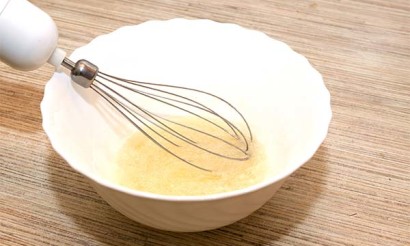How to distinguish a raw egg from a hard-boiled one: 8 proven methods
Hostesses have to prepare a lot of dishes before family celebrations or holidays. Often the preparations are prepared in advance, including boiled eggs. To prevent them from spoiling, they are put in the refrigerator, sometimes next to the raw ones. It can be difficult to figure out which ones are which the next day. But experienced cooks know a few ways to tell the difference between a raw egg and a cooked egg.
- Which egg is heavier: boiled or raw?
- How can you tell if an egg is hard-boiled or raw?
- Crack
- Unscramble
- Shake
- Shake
- Dip it in hot water
- Dip in a salt solution
- Pierce the shell
- Look at the markings
- What methods should not be trusted
- Check by Weight
- Smell test
- Why a hard-boiled egg floats in cold water
- How to test hard-boiled and hard-boiled eggs
- How you know when an egg is almost cooked
Is a hard-boiled egg heavier than a raw egg?
If you observe an egg while it is being boiled you will see that until the water comes to a boil the egg shell is covered with bubbles. This is through microscopic pores air escapes from the product. Instead, water molecules, which are much heavier, get inside. Therefore, a hard-boiled egg will always weigh more than a raw egg. However, you can only see this difference with the help of an electronic scale, because the difference in weight is not great.
How can you tell if an egg is hard-boiled or raw?
There are a lot of methods how to tell if an egg is hard-boiled or raw in the fridge. They are simple, proven, and very hard to go wrong.
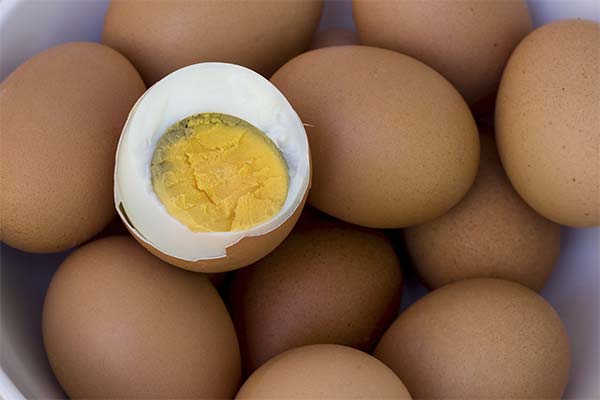
Crack
If a dish requires a raw product, such as for baking, you can just break an egg. If you are unlucky enough to get a hard-boiled one, that's okay. It is enough to peel it and put it in the refrigerator. But at the same time you should remember that it is desirable to eat the egg soon. Without the shell, it can be stored in a cool place for no more than two days.
Unscramble
One of the most common ways to determine whether a product is raw or cooked is to unwind. To do this, place it on a flat surface, preferably a plate. It may fall off the table. With two or three fingers, twist the egg. Due to the fact that in a boiled egg the mass inside is dense, it will spin faster, and if you press it with your finger, it will immediately stop. Raw eggs are noticeably more difficult to spin. When touched, the movement does not stop immediately, because the inner liquid mass, by virtue of inertia, continues to move even after the outer shell has come to rest.
Shake
People with keen hearing can tell the difference between a raw egg and a cooked egg by shaking it in front of the ear. The former makes a sound similar to what you might hear if you shake a plastic bottle of water. In the second case, the product will be "silent."
Clamp the egg between your thumb and forefinger and shake it slightly from side to side. Some movement will be felt in the unheated product.
Illuminate
To definitively make sure that you are not mistaken, you can illuminate the egg. To do this, you need to find a dark room if it is during the day. You can use a bathroom if it has no windows to the outside. A flashlight turned on is placed against the shell. The dense mass of a boiled egg does not let the light through, while in the raw egg the yolk stands out as a darker spot. If you do not have a flashlight handy, you can use any lighting device. Attempting to see anything using sunlight may be unsuccessful.
Dipping it in hot water
Some housewives believe that the most reliable way to tell a cooked egg from a raw one is to put the product in boiling water for 15-20 seconds. The many little bubbles that appear on the shell will show that there is an air chamber inside and that gas has begun to escape through microscopic pores. This means that the egg hasn't been cooked yet. There is no air under the shell of a cooked egg.
Dip it in a salt solution.
In a saturated salt solution, a raw egg should float. To test it, 4 tablespoons of salt are dissolved in one liter of water and the product you want to test is lowered into it. A hard-boiled egg should sink to the bottom, while a raw egg will rise with its blunt end to the top. This is because its density is noticeably lower than that of the salt solution.
If the egg floats up in ordinary water, this indicates that the product is spoiled. You should not eat it.
To pierce the shell
Sometimes you can meet the advice, where it is recommended to carefully pierce the shell with a thick needle or awl. This method can only be used if the egg is expected to be used within the next 24 hours. Air getting inside the product that has not been heated causes a fermentation process. Even if you keep it in the refrigerator, then after 24 hours eating such an egg is dangerous to health. You can get food poisoning.
View labeling
Large poultry farms mark their products with stamping and spraying. The peculiarity of blue or red dye, which is applied to the shell, is its solubility in water. Therefore, when the egg is boiled, the marking is completely washed off. This will help to understand if the product is bought in the store. Homemade eggs, on the other hand, you can mark yourself. For example, after boiling, write the letter "B" on the shell with a marker.
What methods are not to be trusted
Not all methods are able to determine exactly whether the egg is raw or hard-boiled. In some cases it is better to play it safe with one more method.
Check by weight
Even when eggs are calibrated to size, the size of the air bubble in each egg is different. Given that the difference in weight between raw and cooked product is minimal, it is very easy to make a mistake. In addition, the longer eggs are stored, the smaller their weight becomes. Through the micropores in the shell, the moisture evaporates. Although the losses are insignificant, they still make the weight check unreliable.
Smell test
It is believed that a fresh egg has a slight odor of lime, while a boiled egg gives off a scent of protein. But, first, only people with a very sensitive sense of smell are able to distinguish such nuances, especially when the product is in the shell. And secondly, the eggs in storage have the ability to absorb the surrounding smells. Therefore, relying only on this method, trying to determine whether the product is raw or already cooked, is impossible. If you can smell sulfur even through the shell, you have to throw the egg away. It has obviously gone bad.
Why does a hard-boiled egg float in cold water?
For many centuries, the freshness of this product has been tested at home with cold water. If you fill a saucepan with liquid and put a raw egg in it, it should sink to the bottom. This is a guarantee that the product is fresh. In a situation where it is floating above the bottom, it can still be consumed, but it must be done as soon as possible. The shelf life is coming to an end.
Boiled eggs floating on the surface of cold water are definitely spoiled. They should not only not be eaten yourself, but also given to pets.
How to check hard-boiled or hard-boiled eggs
You can check if an egg is hard-boiled or soft-boiled by turning it. A soft-boiled egg will be less easy to crack and will stop much faster.
In order not to make a mistake when boiling, you need to strictly observe the cooking time:
- When dropping a raw egg into boiling water, it is boiled for one minute, and then close the lid and turn off the gas.
- After 5 minutes the white will have set and the yolk will have a creamy consistency.
- After 6 minutes the white will be firm and the yolk will thicken.
How you know when the eggs are cooked?
If the eggs need to be boiled in a softened or pouch, you will have to time them so as not to overcook them. The main thing is not to overcook them. In 10 minutes after boiling water will be ready hard-boiled eggs.
But, if you couldn't time it, you can try untwisting it on the table. Finished easily picks up speed and stops quickly when pressed with a finger.
«Important: All information on this site is provided for informational purposes only purposes only. Before applying any recommendations, please consult a specialist. specialist before using any of the information on this site. Neither the editors nor the authors shall be liable for any possible harm caused by materials."


